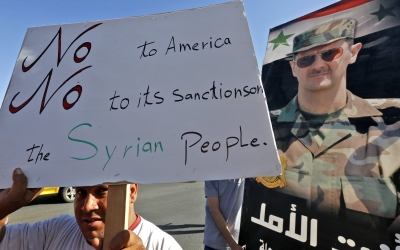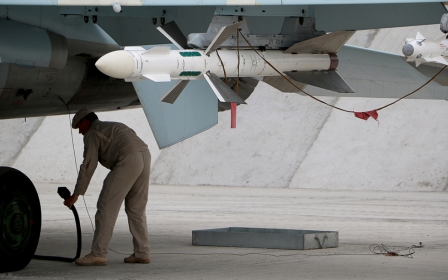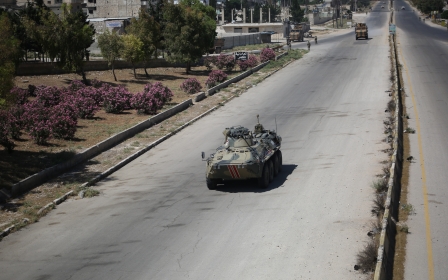US imposes sanctions on Syrian president's 'henchman' and media adviser

The United States has slapped sanctions on several senior political, military and financial figures in the Syrian government as part of the Caesar Act, Secretary of State Mike Pompeo announced.
Among those sanctioned were people targeted for their roles in supporting or associating with Syrian President Bashar al-Assad, Pompeo said in a statement on Thursday.
Yasser Ibrahim, described by Pompeo as the Syrian president's "henchman", was prominently sanctioned.
Pompeo said Ibrahim was being targeted "for his efforts to prevent or obstruct a political solution to the Syrian conflict" that began in 2011.
"Using his networks across the Middle East and beyond, Ibrahim has cut corrupt deals that enrich Assad, while Syrians are dying from a lack of food and medicine," the secretary continued.
The sanctions also hit Luna al-Shibl, the Syrian leader's media adviser, and Mohamad Amar Saati, a senior official of the ruling Baath Party who allegedly "led an organisation that facilitated the entry of university students into Assad-backed militias".
Several heads of military units were also added to a long list of Syrians under US sanctions "for their efforts to prevent a ceasefire in Syria".
"These senior officials lead the same Syrian military that has killed children with barrel bombs and used chemicals weapons against communities like Ghouta" seven years ago, said Pompeo, noting that the attack killed "more than 1,400 Syrians".
"Today's sanctions reinforce our commitment to hold Assad's generals and militia commanders accountable for their violations and abuses," he said.
The Caesar Act
Treasury Secretary Steven Mnuchin said in a statement that all of the officials sanctioned on Thursday "actively contribute to the oppression of the Assad regime", making them elligible for Caesar Act sanctions.
In his statement, Mnuchin promised that the US would "continue to impose costs on those facilitating the Assad regime's ongoing war against its own people".
The sanctions freeze any assets the targeted individuals may have in the United States, block them from accessing the US financial system, and bar them from entering US territory. Assad has been under US sanctions since he began to crush the uprising in 2011.
Those levied on Thursday mark the third wave of sanctions since the Caesar Act came into force in mid-June in an attempt to prevent Assad's normalisation without accountability for human rights abuses.
Already, US and European Union sanctions have frozen the assets of the Syrian state and hundreds of companies and individuals. Washington has banned American exports to and investment in Syria, as well as transactions involving oil and hydrocarbon products.
Caesar Act sanctions cover more sectors than those previously levied, and can freeze assets of anyone dealing with Syria, regardless of nationality. The measure also targets those dealing with entities from Russia and Iran, Assad's main backers.
Last month, the State Department sanctioned Assad's 18-year-old son, along with 13 other individuals and entities.
Syrian authorities blame Western sanctions for widespread hardship among ordinary residents, where a currency collapse has led to soaring prices and people struggling to afford food and basic supplies.
The Caesar Act is named after a Syrian former military photographer who fled the country at great personal risk with 55,000 images of brutality in Assad's jails. His incognito testimony before the US Congress in 2014 was the basis for the legislation, which took five years to pass.
Middle East Eye propose une couverture et une analyse indépendantes et incomparables du Moyen-Orient, de l’Afrique du Nord et d’autres régions du monde. Pour en savoir plus sur la reprise de ce contenu et les frais qui s’appliquent, veuillez remplir ce formulaire [en anglais]. Pour en savoir plus sur MEE, cliquez ici [en anglais].






